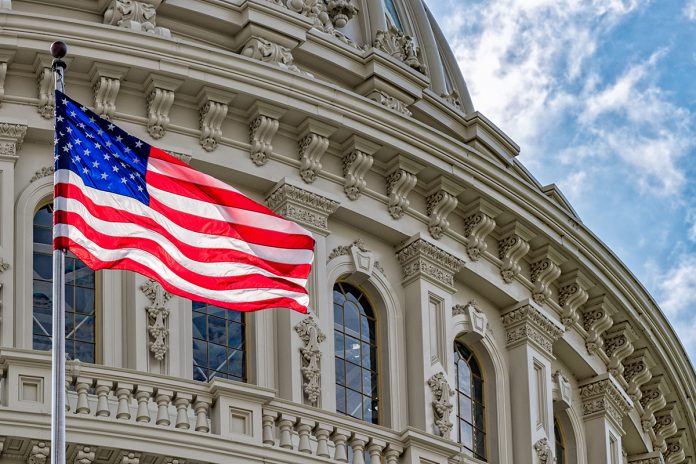WASHINGTON, D.C. – The Health subcommittee for the U.S. House Committee on Energy and Commerce on Wednesday held a three-plus hours-long hearing on the topic of “Cannabis Policies for the New Decade,” which examined legislative proposals that would allow significant federal policy reform, if passed.
Wednesday’s hearing focused mainly on cannabis research.
In his opening statement, Representative Frank Pallone, Jr. (D-N.J.), chairman of the House Energy and Commerce Committee said, “I am looking forward to hearing from the panel of agency witnesses who agreed to appear before the subcommittee today. The Drug Enforcement Administration, the Food and Drug Administration, and the National Institute on Drug Abuse all play crucial roles on federal cannabis policy—from researching its benefits and harms to protecting the American public from bad actors.
“I hope that we can learn about what the agencies believe works, and what needs to be changed,” Pallone added. New Jersey, where Rep. Pallone is from, is one of twenty-two states that allow medical marijuana use, and will send legislation to state voters in 2020 that, if approved, would allow adult-use.
Pallone also acknowledged Representatives Earl Blumenauer (D-Ore.) and Barbara Lee (D-Calif.) and the bi-partisan members of the Congressional Cannabis Caucus.
Health subcommittee Chairwoman Anna G. Eshoo (D-Calif.) added, “States’ laws and federal policy are a thousand miles apart. As more states allow cannabis, the federal government still strictly controls and prohibits it, even restricting legitimate medical research.
“Given the widespread availability of cannabis, the purpose of today’s hearing is to examine the pressing need for medical research about cannabis and its chemical compounds with CBD being one of them,” Eshoo said.
No decisions were made at Wednesday’s hearing, but it does mark the first time the House Committee on Energy and Commerce had discussed cannabis policy reform.
Witnesses Matthew J. Strait from the Drug Enforcement Administration (DEA); Dr. Douglas Throckmorton, M.D., for the Food and Drug Administration (FDA); and Dr. Nora D. Volkow from the National Institutes for Health (NIH) testified before the committee.
Representative Doris Matsui (D-Calif.) pointed out in California, the University of California had important cannabis studies underway but is restricted to sourcing cannabis for research from a federally approved producer in Mississippi. Though the university has applied for a license to cultivate its own cannabis for research, Matsui said there had been no reply from Department of Justice or the DEA.
DEA’s Strait said while the agency was in full support of research, often applications from researchers were held up by lack of documentation, showing that university officials had approved projects for application.
Matsui replied she was sure the University of California had been diligent and submitted completed applications, and hoped to expedite the process with the agency.
The congresswoman also asked witnesses if—for research purposes—there was a recognized difference in status for synthetic CBD or hemp-derived CBD, and CBD extracted from cannabis, and current policy regarding CBD products.
The NIH’s Dr. Volkow said researchers there were interested in both the positive and negative affects of CBD, but primarily at a molecular level—and also in how affects might be influenced by other cannabinoids.
Dr. Throckmorton, from the FDA, added that passage of the 2018 Farm Act included provisions allowing cultivation of industrial hemp in the United States, and also that “cannabidiol (CBD) was removed from oversight, from the Controlled Substances Act [by the provisions] that encourages studies using it, without having to interact with the DEA. We believe that’s potentially powerful in terms of getting new studies done.”
Strait agreed with Dr. Throckmorton’s assessment, pointing out synthetic CBD and hemp-derived CBD with less than 0.3 percent THC content were not under oversight of the DEA.
Later in the hearing, Dr. Throckmorton was asked by Representative Cathy McMorris Rodgers (R-Wash.) about the proliferation of cannabis and CBD products already on the market, while Epidiolex is the only cannabis-derived medication approved by the FDA for treatment of severe epilepsy, and what procedure might be implemented to protect consumers and public safety.
“Cannabis products should be held to a standard people can trust,” McMorris Rodgers said.
“I personally believe that one important element is the development of a mature industry that uses these products—an industry used to manufacturing standards, labeling standards, packaging standards, of the kind that you see when you go into Walmart or Costco,” Dr. Throckmorton replied. “I hope behind the recent increase in interest of doing research using these products, behind that will be the growth of an industry that wants to do the right thing—that wants to be science-driven, appropriately labeled, and aspiring to a high quality standard.
“I also think it’s terribly important that we lay out a pathway for non-drug products containing compounds from hemp, so there’s a clear path for developers to follow, to find a way forward with those products and making them appropriately available,” Throckmorton added, and said that talking to state officials had been very helpful, regarding CBD products.
In the area of cannabis research, H.R. 601, the “Medical Cannabis Research Act of 2019,” was introduced by Rep. Matt Gaetz (R-Fla.) and would require the Attorney General to allow more cannabis producers to be federally registered for providing cannabis for research. It also would allow the Department of Veteran’s Affairs (VA) healthcare providers to give information to veterans about federally approved cannabis trials, in which veterans would be allowed to participate.
Other proposed cannabis legislation before the committee included:
- H.R. 171, the “Legitimate Use of Medicinal Marihuana Act” or “LUMMA”
- H.R. 1151, the “Veterans Medical Marijuana Safe Harbor Act”
- H.R. 2843, the “Marijuana Freedom and Opportunity Act”
- H.R. 3797, the “Medical Marijuana Research Act of 2019”
- H.R. 3884, the “Marijuana Opportunity Reinvestment and Expungement Act of 2019” or the “MORE Act of 2019”
For complete coverage of the subcommittee hearing, click here.











